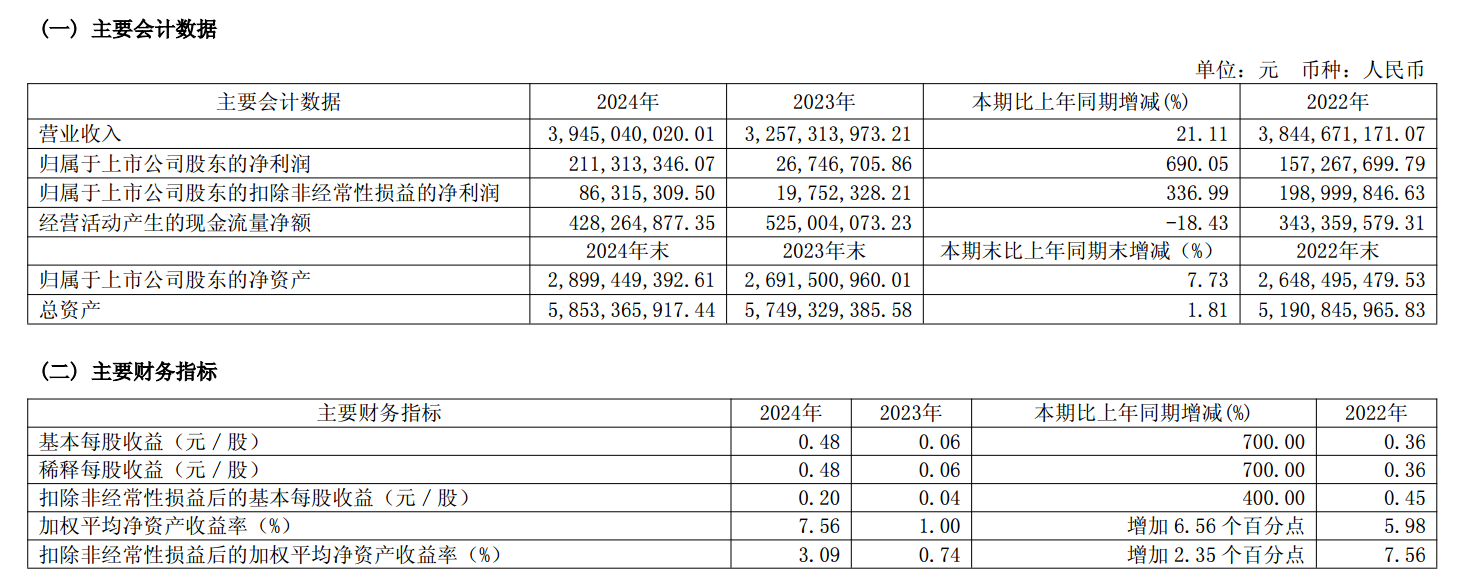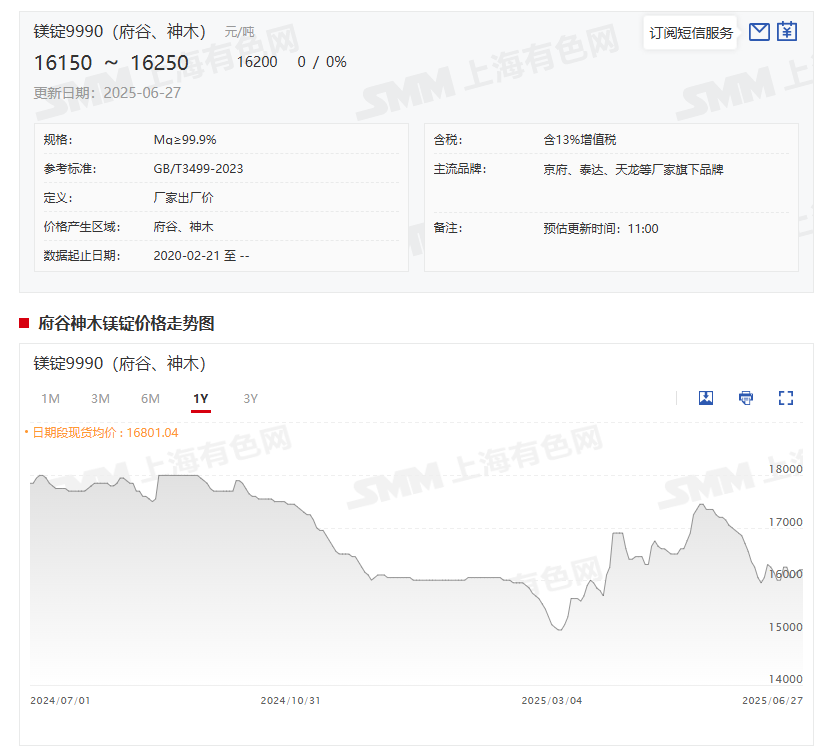"What are the main products and businesses that the company is currently cooperating with Huawei on? Additionally, as the automotive electronics magnesium alloy business has entered the mass production stage, who are the current partners, and how is the product sales?" Chunqiu Electronics responded on the investor interaction platform on June 27th, that the company has obtained certifications from multiple well-known automotive electronics producers in the automotive magnesium alloy application business and has formed business relationships with multiple NEV manufacturers and their suppliers. The downstream products cover NEV car models from Xiaomi, NIO, XPeng, BYD, BMW, Geely, Volkswagen, etc. The products cooperated with Huawei are mainly structural parts for laptops.
When asked, "Xiaomi's YU7 was launched last night. Does the company provide structural parts for YU7?" Chunqiu Electronics responded on the investor interaction platform on June 27th: The end-users of the company's automotive magnesium alloy application business include automakers such as Xiaomi, NIO, XPeng, BYD, BMW, Geely, Volkswagen, etc. The products provided by the company for Xiaomi are applied to its SU7, YU7, and other car models.
Chunqiu Electronics previously disclosed its Q1 2025 report, showing that in the first quarter of this year, the company achieved a total operating revenue of 868 million yuan, a year-on-year decrease of 4.55%; and a net profit attributable to shareholders of 40.2973 million yuan, a year-on-year increase of 178.70%. Regarding the reasons for the increase in net profit, Chunqiu Electronics stated that it was mainly due to the increase in the company's business profitability during this reporting period.

Chunqiu Electronics' 2024 annual report showed that in 2024, the company achieved a total operating revenue of 3.945 billion yuan, a year-on-year increase of 21.11%; and a net profit attributable to shareholders of 211 million yuan, a year-on-year increase of 690.05%. The current period's operating revenue increased by 687,726,046.8 yuan compared to the previous period, representing a 21.11% increase YoY, mainly due to the recovery of the laptop industry and the growth in orders for automotive electronics businesses.

Chunqiu Electronics also announced its business plan in its 2024 annual report: The company's main business focuses on the preparation of structural parts and related precision molds for consumer electronics products. The company's future business operation plans are as follows:
(I) Structural Parts for Consumer Electronics Products In the future, the company will continue to strengthen its competitive advantages, win more high-quality downstream customers through its core material application and product development capabilities, as well as its automated system integration portfolio, and steadily promote the structural parts business for consumer electronics products to achieve steady growth in business scale. The company will further optimize the layout of the existing industry market, consolidate its existing share in the plastic laptop structural parts business, and increase investment and expansion efforts in emerging markets with good demand prospects. Based on the investment projects funded by raised capital, the company continues to increase R&D and investment in the application of new materials for laptops. Leveraging its experience and advantages in structural components and precision molds for consumer electronics, the company focuses on emerging high-value-added products such as metal stamping, magnesium-aluminum parts, and carbon fiber. It aims to deeply explore market demands, enhance profitability, and realize its business planning. Meanwhile, the company will intensify R&D efforts and capital investment to complete and upgrade core technologies in precision mold manufacturing equipment, metal processing, and injection molding, forming exclusive solutions with industry-specific characteristics.
(II) Precision Molds for Structural Components of Consumer Electronics Molds are the basic technological equipment for industrial production. The industry the company operates in is a typical mold application industry, where the quality of molds determines the quality of products. The technological level and scientific content of mold production largely determine product quality, efficiency, and the ability to develop new products. Relying on its current precision mold design and manufacturing technologies, the company will accelerate capital, R&D, and personnel investment in precision mold preparation. It will closely align with market development trends, moving towards large-scale, precision, and complex molds. Focusing on "one mold, multiple cavities" mold preparation technology that enhances production efficiency and ultra-precision machining that improves preparation accuracy, the company will further enhance the specialization and standardization of molds, thereby shortening the manufacturing cycle of precision molds, improving mold quality, and reducing mold manufacturing costs. Relying on intelligent manufacturing platforms such as automated mold electrode scanning and CNC tool scanning systems, the company will significantly improve the processing efficiency of precision molds compared to traditional methods. Building on its technological accumulation in laptop structural component manufacturing, the company will timely expand into precision mold businesses for structural components of other consumer electronics, which will become a key area for the company's future expansion and another driver for sustained profit growth. Meanwhile, the company will strive to differentiate itself from competitors through intelligent manufacturing, achieving flexibility, customization, and intelligence in the production process. This will enhance production efficiency, product quality, and asset utilization, thereby winning the downstream market for high-end consumer electronics structural components and precision molds, and improving the company's overall market competitiveness and revenue.
(III) Application of Magnesium-Aluminum Materials in NEVs According to data from the China Passenger Car Association (CPCA), the retail sales of passenger NEVs in the market reached 10.899 million units in 2024, up 40.7% YoY. According to forecasts by the International Energy Agency (IEA), by 2025, global NEV sales will reach 30 million units, accounting for 12% of total vehicle sales; by 2030, global NEV sales will reach 70 million units, accounting for 26% of total vehicle sales. According to the planning outlined in China's "Energy Conservation and New Energy Vehicle Technology Roadmap," by 2030, the amount of magnesium alloy used per vehicle in China will reach 45kg, accounting for 4% of the total vehicle weight. It is expected that by 2030, the demand for magnesium alloy die-castings in China's automotive market will reach 1.31 million mt, with a compound annual growth rate (CAGR) of 13.2% from 2020 to 2030. The future high penetration of magnesium-aluminum alloys is promising. Magnesium alloy boasts excellent corrosion resistance, castability, mechanical strength, and is the lightest practical alloy. It offers good machinability, a high strength-to-density ratio (specific strength), rigidity, high heat dissipation, outstanding casting performance, superior shock absorption, and excellent workability, making it the best choice for lightweighting new energy vehicles (NEVs). The company has years of manufacturing experience and technological advantages in the application of magnesium alloy materials. Through semi-solid injection molding technology, it has rapidly entered the parts supply chain of NEVs amid the lightweighting trend, providing application support for NEV central control systems, steering systems, and electronic control systems.
On May 20, Dongwu Securities issued a research report, giving Chunqiu Electronics a "buy" rating. The main reasons for the rating include: 1) steady revenue growth driven by the recovery of PCs and the increase in automotive production; 2) PC structural parts: AI/foldable and other PC innovations catalyze the expansion of structural part demand; 3) automotive electronics: the lightweighting trend of NEVs is clear, and magnesium alloy has entered the mass production stage. Risk warnings: demand falls short of expectations; intensified competition; increased raw material costs, etc.
Reviewing the performance of the magnesium industry chain in 2024, it can be seen that: affected by the weak operation of raw material prices, magnesium prices continued to decline in 2024. Taking the price of 90# magnesium ingot in the main production area of Fugu as an example, the unit price at year-end was 16,000 yuan/mt, compared to 20,250 yuan/mt at the beginning of the year, representing a magnesium price drop of up to 21%. The significant downward trend in magnesium prices has imposed unprecedented cost pressure on magnesium ingot smelters, sharply compressing profit margins and making it difficult for magnesium ingot smelters to operate.
However, in the magnesium alloy market: over the past few years, due to high and volatile magnesium prices, magnesium alloy production and exports have suffered significant setbacks. Especially for domestic die-casting enterprises, without pricing power, the significant fluctuations in raw material prices have greatly compressed corporate profits. Some small and medium-sized factories have chosen to cut or suspend production due to cost pressures, magnesium alloy projects have been halted, and the expansion of downstream applications for magnesium alloys has been severely hindered. Nevertheless, with the gradual stabilization of magnesium prices in 2024, the cost-effectiveness of magnesium alloys has become increasingly prominent. Downstream demand for magnesium alloys has gradually recovered, and market acceptance of magnesium alloys has gradually increased, with some factories experiencing a backlog of orders for foreign trade. According to SMM statistics, China's total magnesium alloy output reached 354,000 metric tons (mt) in 2024, marking a 14.2% year-on-year increase. It is understood that dozens of automotive magnesium alloy components have been developed for the market, including steering wheel frameworks, instrument panel brackets, and other parts. Among these, magnesium alloy steering wheel frameworks have been adopted in over 80% of vehicles, while the application of large-sized magnesium alloy components such as dashboard brackets, center console brackets, display brackets, and air conditioning brackets in high-end brand vehicles has become a trending development. Consequently, the advancement of magnesium alloy applications in the NEV sector is expected to significantly boost magnesium alloy market demand.
》Click to view SMM magnesium spot prices
》Subscribe to view SMM metal spot price history trends
Reviewing magnesium price movements in H1 2025 reveals a pattern of lower early and higher later performance, followed by a price surge and subsequent pullback, with bottom-out fluctuations. During the first half, prolonged production suspensions at magnesium plants gradually reversed the market's supply-demand imbalance toward tighter conditions. Tight spot supply and low inventory levels provided a temporary foundation for upward price movements, while news events including "solid waste disposal restrictions," "suspension of dolomite mining operations in Wutai region," and "environmental protection inspection teams' arrivals" frequently disrupted market sentiment, leading to frequent magnesium ingot price fluctuations. As of June 25, the annual high for 99.90% purity magnesium ingot (Fugu/Shenmu) averaged 17,450 yuan/mt on May 13-14, while the annual low averaged 15,050 yuan/mt on March 6-7, resulting in a 2,400 yuan/mt price spread between H1's peak and trough.
Magnesium ingot market: Current price fluctuations remain narrow, maintaining sideways movement within the 16,000-16,300 yuan/mt range for three consecutive weeks, exhibiting clear consolidation characteristics. While supply-side production remains temporarily stable, anticipated production resumptions in July create latent pressure. Demand-side domestic trade remains stable, but export orders have stagnated, with traders predominantly purchasing as needed. The market lacks fresh demand drivers, maintaining a generally weak operational trend. Magnesium alloy market: Recently, leading enterprises have gradually released new production capacities, driving magnesium alloy output upward. However, intensified cut-throat competition in alloy processing fees has led to bottomed-out price movements. Considering the current sluggish trading atmosphere in the magnesium alloy market combined with rangebound raw material (magnesium ingot) price fluctuations, subsequent magnesium alloy prices are expected to exhibit narrow fluctuating trends.
Recommended readings:




